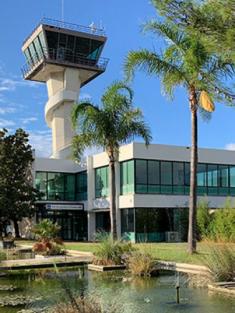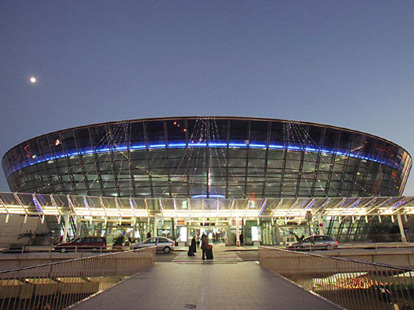In March 2020, the Aéroports de la Côte d’Azur Group launched an agile and voluntary policy, which enabled them to both respond to the obligations associated with their concession contract and preserve their cash flow. It is through this policy that the three airports managed by ACA were able to remain open and operational, 7 days a week, 24 hours a day, without any compromise in terms of quality of service. A performance contributing to the fulfilment of their public-service missions which, in particular, allowed the airports of Cannes and Nice to handle medical flights. It also allowed Nice Airport to play a role in the rescue missions when Storm Alex hit, with its Terminal 1 acting as a support base and a refuge point for those affected by the storm.
At the same time, many other measures contributed to preserving the Group’s cash flow: recourse to partial furlough, followed by the signing of a long-term reduced-activity agreement in the autumn with unions, and shareholders waving their dividends for the 2019 fiscal year. Despite a significant reduction in operational expenditure, the Group’s EBITDA fell to 20.5 million euros, representing a loss of 100 million euros in relation to 2019. Accordingly, the Group’s net profit has been established at -25% of the turnover, i.e. a loss of 33 million euros.
“Of course, the Group’s financial results are clearly not great, but without the commitment and the sense of responsibility shown by our colleagues, they could have been much worse. This feeling of belonging to a group is one of our Group’s main markers, and it’s one of the key factors that explains how, despite the stormy circumstances, we have been able to keep up with our investments in infrastructure maintenance, safety and security, and our Environment strategy,” explains Franck Goldnadel, Chairman of the Board of Aéroports de la Côte d’Azur.
Furthermore, the Group has also had to adapt to the global pandemic by undertaking unexpected investments in order to ensure public health, and to implement the measures imposed by the health authorities (sanitary checks, implementation and maintenance of equipment related to preventive measures, disinfection products and equipment). This deployment of resources and efforts enabled the airport to rank amongst the safest airports in Europe, receiving ACI Health Accreditation, and making a commitment to the entire profession through its adhesion to the EASA Charter.
Finally, despite this being an aspect which could well have been deemed a lesser priority, the Group made the responsible decision to protect their investments in environmental conservation. This was manifested through the continuation, without the slightest question, of all actions scheduled for the Cap 2030 plan, which aims to reduce CO2 emissions to zero by 2030. The Golfe de Saint-Tropez Airport had in situ carbon sinks installed, making it the first carbon-neutral airport in France, without offsetting. Tree plantations, launched as part of a unique partnership with the French National Forests Office (ONF) and local communities, began around the Cannes Mandelieu and Nice Côte d'Azur Airports.
“While the Group has survived the unprecedented crisis of 2020, and is to continue in its work in 2021, our responsibility towards the region, in our capacity as airport managers, is to do our best to ensure that our commitments to protecting and respecting the environment are not compromised, at any cost. We consider ourselves to be the airport of the future, and in this light, we must be role models in our sector, and do all we can to delineate and embody this model: that of a high-performance airport, one that is safe, and carbon-neutral by 2030,” explains Franck Goldnadel.


